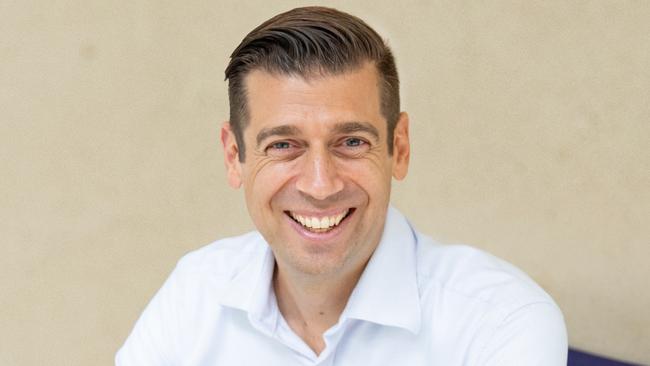Dr Justin Coulson: How to help kids cope during Victoria’s stage 4 lockdowns
Homeschooling is one challenge, but Victoria’s ongoing lockdown has the potential to impact the wellbeing of our children for years to come if we don’t get it right, writes Dr Justin Coulson.
Opinion
Don't miss out on the headlines from Opinion. Followed categories will be added to My News.
Victoria’s lockdown has the potential to impact the mental health and wellbeing of families in significant ways.
Recent research published in The Lancet highlights that mental health is likely to be negatively affected when lockdowns are more severe, of longer duration, and during times of limited information.
Having a lack of predictability undermines our psychological “need for cognitive closure” and can increase anxiety and other mental health issues.
People in lower socio-economic brackets, suffering from mental illness, or experiencing other forms of disadvantage are at particular risk. So, too, are young people for whom this new wave of restrictions on movement and normal life seems incomprehensibly challenging and unnatural.
Parents, regardless of their circumstances, are now in a position where they must juggle their own commitments with the educational needs of their children – and find ways to maintain wellbeing for themselves and their children too.

This is a particular challenge, as research highlights that times of stress and difficulty can cause a narrowed focus on problems, an increase in unhealthy physiological responses (such as chronic increases in stress hormones, lack of sleep, etc), and an inability to rely on social, psychological, and emotional resources that would normally help.
There are, however, a handful of things that Victorian families can do to maintain wellbeing and improve relationships even during this lockdown.
Research from the New Economics Forum outlines a handful of things that require minimal time and no financial outlay, called The 5 Ways to Wellbeing.
1. Focus on healthy relationships
During the novelty of our first lockdown, families generally reported an increased emphasis on playing games, spending time together, and slowing the pace of life down. While this lockdown may seem longer, harder, and more challenging, taking time to connect to others is vital. Parents must connect with friends and family. Children need those same opportunities, even if technology is the only way to make those connections happen.

2. Physical movement and activity is vitally important
With limited access to exercise and the outside world, many families may struggle with this. Yet decades of scientific research emphasises the essential need for our children (and us) to be active. So put that one hour a day to good use by ensuring you all step outside.
3. Take some time to stop and take notice
Be mindful. This peaceful time can be restorative for us and our children. While you may not be allowed to do this on a park bench, perhaps you have a back yard or front porch where you can “just be”. Maybe it’s the bath? Helping your children to press pause from their screens and their usual energy and activity will be good for them too.
4. Keep learning
Homeschooling can be tough, particularly when juggling it with other responsibilities. Yet the data are clear: curiosity and learning (which aren’t always exactly the same thing) are tremendous predictors of wellbeing. When we’re curious and learning, we’re optimistic and energised. This matters for us as adults as much as it does for our children.

5. Find ways to be generous, to serve; to give
As we think of, and help, others who have less than we do, we create better relationships and connections, and we build meaning and purpose. These experiences make lockdown memorable for all of the right reasons, and provide wellbeing boosts well into the future. Helping others is like investing in your wellbeing bank for a future rainy day.
Beyond the 5 Ways to Wellbeing, it’s important to remember a couple of extra points:
Screen time will be an issue; don’t make it one. Screens are generally used for three purposes: connection, creation, and consumption. Make sure kids are spending more time on screens doing those first two things, and less time doing the latter. That means more social interaction and learning, and less Netflix and gaming.
If screens are displacing sleep, school, social time, practice or important family time, they need to be reduced. Other than that, a flexible approach will be best, emphasising connection and creation.
And finally, remember to have fun. We can become so enmeshed in the seriousness of life that we fail to find humour in the small moments we share together. Yet laughter is the best medicine. Find fun together, and with any luck, lockdown will feel less of a chore, and more a joy.
Dr Justin Coulson is a psychologist and parenting expert.
MORE NEWS
Secret to raising money-smart teens in tough times
Ask Agony Uncle: How do I beat my neighbour’s double standard?
